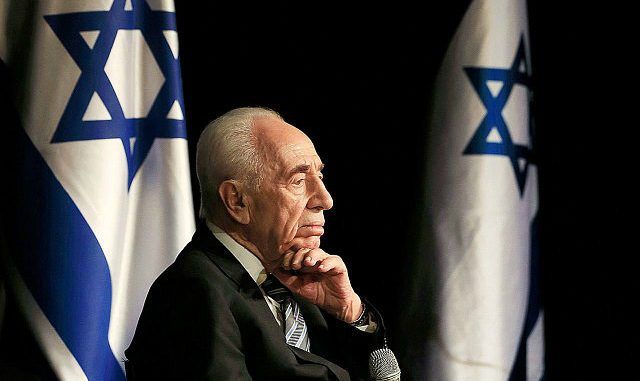
Shimon Peres, known as Israels “last remaining founding father,” has died aged 93 almost two weeks after suffering a stroke.
His death was formally confirmed on Wednesday morning by his son Chemi in a news conference at the Sheba Medical Center in Tel Aviv where his father had been treated.
World figures are expected to attend his funeral in Jerusalem on Friday, including US President Barack Obama, Prince Charles and Pope Francis. Israels Foreign Minsitry said that the Clintons, UN Secretary-General Ban Ki-moon and UK Prime Minister Theresa May have all confirmed they will attend

BYPASS THE CENSORS
Sign up to get unfiltered news delivered straight to your inbox.
You can unsubscribe any time. By subscribing you agree to our Terms of Use
Press TV reports:
Over five decades of politicking, Peres held nearly every major office in the regime’s ranks.
He served as foreign minister under his Labor Party rival Yitzhak Rabin, became prime minister between 1984 and 1986, and then again during 1995-96 after Rabin’s death. The politician also served as the regime’s president from 2007 to 2014.
The career also saw him once functioning as the minister for military affairs.
Under Peres’s tenure as president, two full-scale wars were launched against the Israeli-blockaded Gaza Strip, which killed more than 3,700 Palestinians in total.
He, however, slammed as “outrageous” and “one-sided” a United Nations inquiry that blamed Israel for six serious attacks on UN buildings during the first Gaza offensive and said Tel Aviv would not apologize for defending its people.
Two years into his presidency, he surprised even some Israeli politicians by defending Tel Aviv’s regular deadly forays into the enclave.
In 2009, he famously prompted a walkout by then Turkish Prime Minister Recep Tayyip Erdogan on the World Economic Forum in Davos, Switzerland after an angry exchange with the latter concerning Israeli warfare against the strip.
Qana Carnage
While he was in office as prime minister in 1996, the Israeli military shelled a United Nations compound near Qana, a village in southern Lebanon, where hundreds of locals were sheltering. The raid killed 106 people and injured around 116 others.
When asked to explain, Peres said, “We did not know that several hundred people were concentrated in that camp. It came to us as a bitter surprise.”
However, a UN investigation later revealed that the deaths at the Qana base were unlikely to have been the result of an accident.
As director general of the ministry of military affairs in the 1950s, Peres oversaw the development of Israel’s nuclear program with assistance from France.
The Israeli atomic stockpile is now estimated to be holding at some 200-400 warheads, while the regime refuses to confirm or deny its existence under a policy of deliberate ambiguity.
Peres once told The Time that Israel’s Dimona nuclear reactor in the Negev desert, which is used to manufacture nuclear arms, had helped the regime by leading many Arabs to the suspicion that “it’s very hard to destroy Israel.”
Israel claimed existence in 1948 after carrying out a wholesale war against Arab states and capturing massive swathes of Arab land.
A year earlier, Peres had joined the Haganah, the predecessor of the Israeli military. He had been tasked by his mentor David Ben-Gurion, the so-called “primary founder of Israel” and first Israeli premier, with recruitment of personnel and arms purchases.
“As long as there was a danger to the existence of Israel, I was what you would call a hawk,” Peres once said.
His career was also marked by an incessant push to expand the regime’s illegal settlements, which have been mushrooming across the occupied Palestinian territories.


